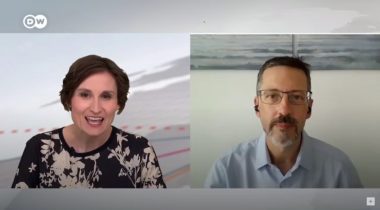
Andres Knobel ■ Global Asset Registries: a game changer for the fight against inequality and illicit financial flows?

In July a workshop was held at the Paris School of Economics to start developing the concept for a Global Asset Registry.
In essence, the point of a Global Asset Registry is to understand (and then tackle) some of the most pressing issues of our times: inequality, and financial crime. The Moldovan Laundromat; the bigger Russian Laundromat; the “Luxleaks” corporate tax cheating scandal, the Danske Bank scandal, or the Cum-Ex “tax theft” affair: new shockers seem to be emerging almost every other day.
Since the global financial crisis, several new global transparency initiatives have popped up, such as the OECD’s push to promote automatic exchange of banking information across borders, or the ongoing drive for better beneficial ownership registries. Other transparency schemes are older: many countries have long had real estate registries, or asset declarations by public officials. Yet many of these initiatives are patchy in scope, riddled with loopholes, and implemented by only a minority of countries. Worse, authorities often work in silos, without effective national coordination between the areas of tax, money laundering and corruption.
The Global Asset Registry could tackle all of these problems by centralising all relevant information about assets owned by individuals. This would give two things: first, inform the big picture about global wealth distribution and inequality, and second, give the big picture about a single person’s wealth. Can this person justify their level of wealth given their (low) declared income? Are they under-declaring their income and wealth for in order to cheat on their taxes? Or, if they are able to buy all these mansions, yachts and jets, yet they have only declared a low income – is that because their wealth stems from drugs or bribes?
An initial discussion about a Global Asset Registry took place at an event of the Independent Commission for the Reform of International Corporate Taxation (ICRICT) in New York in September 2018. On that occasion ICRICT produced a roadmap towards a Global Asset Registry, (including some of the Tax Justice Network’s ideas). In 2019 the game was opened to more players to develop the concept further. The workshop was co-organised by ICRICT, the World Inequality Lab, the Tax Justice Network, Transparency International and the Financial Transparency Coalition. Participants included ICRICT Commissioners Thomas Piketty, Gabriel Zucman and Eva Joly as well as representatives from the OECD, the IMF, the World Bank, the Inter-American Center of Tax Administrations (CIAT), the European Parliament, a former FBI agent, researchers, academia and civil society organisations. The workshop was organised as a closed roundtable to foster dialogue and intervention from everyone on an equal footing, allowing experts to speak at a personal level (not necessarily on behalf of the institution they work for). The agenda, list of participants and a brief of the discussions held is available here.
We are still some way away from defining a final concept and scope for a Global Asset Registry. The 2019 workshop discussed which assets should be within its scope, and some intermediate steps, such as aggregate statistics on individuals by wealth bracket, and overall taxes paid.
Many thorny issues are still to be developed. Who should host a Global Asset Registry? Which assets should be in its scope? Who should have access: local or foreign authorities only – or the wider public? What are the data security issues?
This is just the start of a new initiative that may create synergies within many of the existing transparency initiatives but can also take it one step further: identifying other areas needing more transparency, and centralising information for the fight against inequality and financial crime.
Related articles

The Tax Justice Network’s most read pieces in 2023

Our response to the FATF’s consultation on Guidance on Recommendation 25 on beneficial ownership transparency for legal arrangements

#55 Tous pour une Convention Fiscale Internationale des Nations Unies

Finance climat en Afrique: Une urgence pour les administrations fiscales #54

Strengthening the fight against money laundering: Criminalisation of the EU directive

Can the UN succeed? Top questions about our State of Tax Justice report

Why the world needs UN leadership on global tax policy

The unexploited silver bullet to tackle enablers: mandatory disclosure rules

Split among EU countries over beneficial ownership ruling mirrors rankings on Financial Secrecy Index



very nice article well done